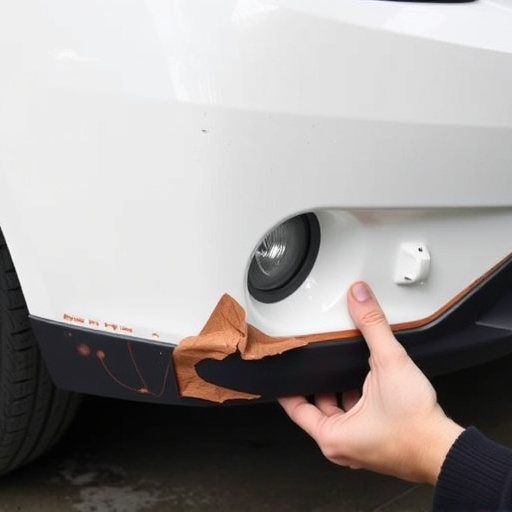Electronic measuring systems (EMNs) revolutionize vehicle resale value assessment in the automotive industry through precise measurements of body panel alignment, paint thickness, and cosmetic imperfections. They streamline appraisal processes, minimize disputes, enhance transparency, build customer trust, and contribute to efficient market dynamics for both buyers and sellers, ultimately supporting better-maintained vehicles and higher resale values.
In today’s digital era, the role of technology in vehicle resale value is undeniable. Electronic Measuring Systems (EMNs) have revolutionized how we assess and price vehicles, offering precise data on condition and history. This article explores the profound impact of EMNs on vehicle resale values, delving into their functionality, benefits for dealers, and potential challenges. Understanding EMNs is crucial for navigating the evolving automotive landscape and maximizing resale potential.
- Understanding Electronic Measuring Systems in Vehicles
- How EMNs Impact Vehicle Resale Value
- The Benefits and Challenges of EMN Adoption for Dealers
Understanding Electronic Measuring Systems in Vehicles

Electronic measuring systems have revolutionized the way vehicles are assessed and repaired, becoming an integral part of modern automotive industry standards. These advanced tools offer precise measurements, allowing for accurate evaluations of a vehicle’s condition, particularly in cases of damage assessment and restoration. By employing sensors and specialized software, these systems can detect even subtle imperfections, such as dents or scratches, with remarkable accuracy. This technology is invaluable for both professionals in the automotive restoration field, like those specializing in Mercedes Benz repair, and for ensuring fair practices in vehicle dent repair processes.
The implementation of electronic measuring systems streamlines various aspects of vehicle maintenance and resale preparation. From assessing the extent of damage after an accident to accurately determining the necessary repairs, these systems provide a standardized and objective approach. This uniformity is crucial when attempting to preserve the resale value of vehicles, as it enables consistent and reliable assessments across different locations and service providers. Whether for minor cosmetic issues or more complex automotive restoration tasks, electronic measuring systems play a pivotal role in maintaining vehicle integrity and maximizing resale potential.
How EMNs Impact Vehicle Resale Value

The introduction of electronic measuring systems (EMNs) has significantly transformed the automotive industry, particularly in vehicle resale value assessment. These advanced technologies offer a more precise and detailed evaluation process compared to traditional manual methods. With EMNs, various aspects of a vehicle’s condition can be accurately measured and documented, including body panel alignment, paint thickness, and cosmetic imperfections. This level of precision is invaluable for both buyers and sellers as it ensures transparency and reduces the potential for disputes regarding pre-existing damage or necessary repairs.
The impact on resale value is twofold. Firstly, EMNs facilitate more accurate valuation reports, which can lead to fairer transactions. Secondly, by providing a comprehensive digital record of a vehicle’s condition, these systems empower car bodywork services and automotive restoration specialists to carry out their work with enhanced efficiency. This, in turn, contributes to better-maintained vehicles, further increasing resale value over time. The use of EMNs is not just a modern convenience; it is a game-changer that ensures the integrity and longevity of vehicle condition assessments.
The Benefits and Challenges of EMN Adoption for Dealers

The adoption of electronic measuring systems (EMNs) by vehicle dealers offers numerous advantages. These advanced tools streamline the appraisal process, providing accurate and consistent assessments of a car’s condition. With EMNs, dealers can quickly capture and analyze data related to frame straightening, auto maintenance history, and even the extent of previous autobody repairs. This technology ensures that resale values are determined objectively, reducing potential disputes between buyers and sellers.
Despite these benefits, there are challenges associated with implementing EMN systems. Initial costs for purchasing and integrating the technology can be significant. Additionally, dealers need to invest time in training staff to operate the new equipment effectively. However, when properly utilized, EMNs enhance transparency, build trust with customers, and contribute to a more efficient market for both buyers and sellers, ultimately supporting the overall resale value of vehicles.
Electronic measuring systems (EMNs) play a pivotal role in shaping vehicle resale values by providing accurate, consistent assessments. Their integration offers dealers numerous benefits, from streamlined valuation processes to enhanced customer trust. However, challenges such as initial implementation costs and data accuracy concerns must be addressed. As the automotive industry continues to embrace digital transformation, EMNs are poised to become an indispensable tool for maintaining and optimizing vehicle resale values in today’s market.














